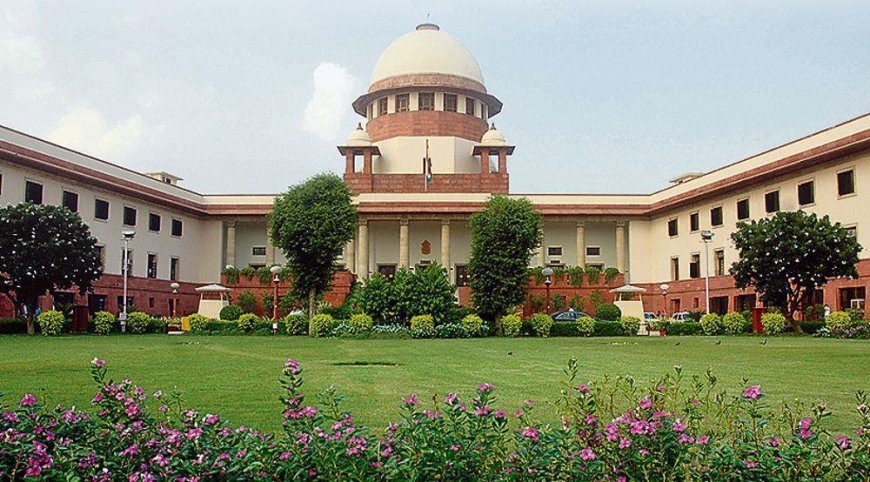Delimitation of assembly seats in Jammu and Kashmir is correct, Supreme Court dismisses petition challenging it
Supreme Court on Jammu and Kashmir Delimitation: The Supreme Court of the country on Monday upheld the delimitation of assembly seats in Jammu and Kashmir. The Supreme Court has dismissed the petition challenging the process of delimitation.

After the abolition of Article 370 in Jammu and Kashmir, delimitation was done to demarcate the assembly seats of the state. The State Delimitation Commission submitted its report to the government after a lot of hard work. In this report, there was talk of increasing the assembly seats in the Jammu division. Which many political parties of Kashmir were opposing. Later the matter reached the Supreme Court. Where today the delimitation of Jammu and Kashmir has been justified. On Monday, the Supreme Court heard a petition challenging the process of delimitation of assembly seats in Jammu and Kashmir. In the hearing, the court upheld the process of delimitation. and dismissed the petition challenging it. During the hearing, the court also said that after the abrogation of Article 370, the issue of reorganization of Jammu and Kashmir and Ladakh is pending with it. He has not considered this aspect in this hearing.
It may be noted that Haji Abdul Gani Khan and Mohammad Ayub Mattoo, residents of Srinagar, had filed a petition in the Supreme Court challenging the process of delimitation. These people had said in their petition that the correct procedure was not followed in the delimitation. The central government, the Jammu and Kashmir administration and the Election Commission had called this argument wrong.
Last year on 13 May 2022, the Supreme Court issued a notice on this matter. Even then the court had made it clear that the hearing would be only on delimitation. The issue related to the removal of Article 370 in Jammu and Kashmir will not be considered. Then on 1 December 2022, the bench of Justices Sanjay Kishan Kaul and Abhay S Oka reserved the decision in the case.
During the hearing, the petitioner side argued that the constitution of the commission headed by former Supreme Court judge Justice Ranjana Desai for the delimitation of assembly seats in Jammu and Kashmir is not correct according to the constitutional provisions. The petitioners argued that the boundaries of the assembly constituencies have been changed in the delimitation. New areas have been included in it. The number of seats has been increased from 107 to 114, including 24 seats in Pakistan-occupied Kashmir. This is not in accordance with Section 63 of the Jammu and Kashmir Reorganization Act.
Responding on behalf of the Central Government in the Supreme Court, Solicitor General Tushar Mehta said that under Articles 2, 3 and 4 of the Constitution, the Parliament was given the right to make laws related to the formation and arrangement of a new state or administrative unit in the country. Has gone. Under this, the Delimitation Commission has been constituted earlier also. It is also wrong of the petitioner to say that the delimitation has been implemented only in Jammu and Kashmir. It has also been rolled out for Assam, Arunachal Pradesh, Manipur and Nagaland.
